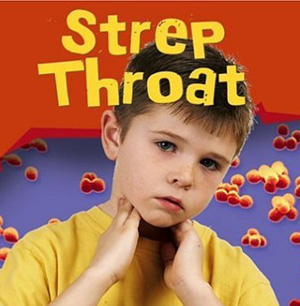University of Tennessee Health Science Center – Vaccine on Path for Commercialization
An international collaboration between Vaxent, a Memphis-based early stage vaccine development company in the Memphis Bioworks Foundation Incubator, and The Pan-Provincial Vaccine Enterprise Inc. (PREVENT), a Centre of Excellence for Commercialization and Research (CECR) in Saskatchewan, has put a vaccine for group A streptococcus (Strep-A) back on the path for potential commercialization. Under the terms of the agreement, PREVENT receives the exclusive worldwide license to progress vaccine candidates through developing vaccine formulations, manufacturing, completing preclinical studies and conducting clinical trials. Both parties will participate in the commercialization process under a cost-sharing and revenue-sharing arrangement.
Group A streptococcus is a significant cause of pharyngitis or “strep throat” in children, as well as other more serious diseases such as streptococcal toxic shock syndrome, necrotizing fasciitis (so-called “flesh-eating disease”) and acute rheumatic fever and rheumatic heart disease. There are 11 million physician office visits for sore throat or suspected strep throat in the U.S. each year, with 15 to 30 percent of those cases confirmed positive for group A streptococcus. The total cost (direct health care and indirect productivity loss) of these infections is estimated to be $2 billion annually in the U.S., alone.
The Strep-A vaccine was developed over 25 years of laboratory research by James B. Dale, MD, Gene H. Stollerman Professor of Medicine and Chief of the Division of Infectious Diseases at the University of Tennessee Health Science Center in Memphis, Tennessee. Dr. Dale is the Chief Scientific Officer for Vaxent. Since April, 2008 Vaxent has been a part of the Memphis Bioworks Incubator.
“The 30-valent vaccine for Strep-A is the most complex genetically engineered vaccine ever developed for clinical trials,” said Dale. “It will cover between 90 and 95 percent of Strep-A found in North America and could have a significant impact on the incidence of strep throat and more serious, invasive infections. In addition, an effective Strep-A vaccine could lead to a significant decrease in the need for antibiotic administration in children, thus reducing the risk of antibiotic resistance of other bacteria.”
Other childhood vaccines, such as Prevnar designed to prevent the most common and serious pneumococcal infections, has had a profound impact on the health of children worldwide. Prevnar is recommended for all children under the age of two. Wordwide sales are predicted to reach $5-6 billion by 2014.
“Vaxent is an excellent example of local science and technology moving from the research laboratory to local entrepreneurial incubation and now on to the next step toward the marketplace,” said Dr. Steve Bares, president and executive director of the Memphis Bioworks Foundation. “Our ability as a community to successfully nurture our local science will have long term benefits for our community, and in this case for world health.”
Over a three year period, it is expected that the agreement will progress through manufacture of the vaccine, to pre-clinical testing, to a phase 1 clinical trial in adult volunteers. Only after success at this stage will an age step-down study be launched to test the vaccine in adolescents and children.
Strep-A diseases are more common in children than adults. Illness ranges from uncomplicated pharyngitis to invasive toxic shock syndrome, necrotizing fasciitis (flesh eating disease), cellulitis, sepsis (blood infection), pneumonia, and subsequent complications such as rheumatic fever and kidney disease. There are 616 million cases of pharyngitis caused by Strep-A worldwide each year. Rheumatic heart disease affects millions of children and adults in the world and may cause over 1 million deaths per year. At least 18.1 million cases of invasive infections occur each year in children and adults. There are at least 517,000 deaths globally each year due to severe Strep-A infections; necrotizing fasciitis kills about 30 percent of patients and streptococcal toxic shock syndrome has a mortality rate of 30 to 70 percent.
Strep-A vaccine development was recently discussed at the Global Vaccine Research Forum of the World Health Organization. Additionally, in 2009 Vaxent was recognized by the World Vaccine Congress as a finalist for the Best Prophylactic Vaccine of the year award. The finalists are selected based on nominations by peer companies and careful review by the World Vaccine Congress selection committee.
~Dee Helton, Student Ambassador at UT Health Science Center



Leave a Reply
Want to join the discussion?Feel free to contribute!